Hotei and the Mythical Lucky Gods of Japan!

Tokyo Terry
Posted on December 17, 2024
Share:
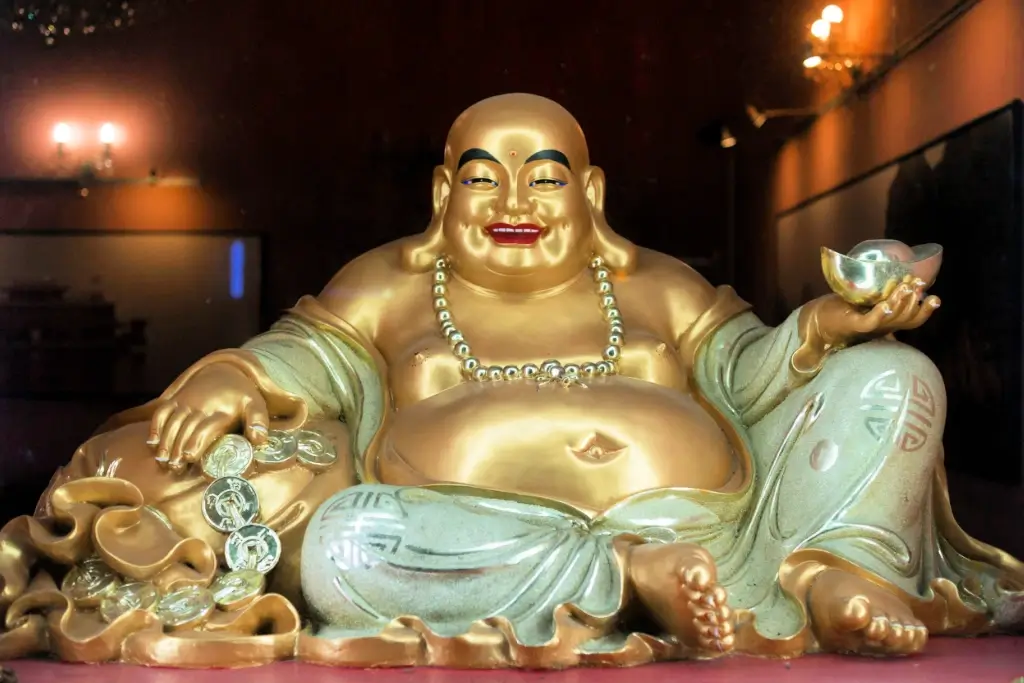
Across Japan, the “Seven Lucky Gods” are beloved symbols of fortune and prosperity. Hotei, the “Laughing Buddha,” stands out as a figure of abundance and happiness. Some of these legendary spiritual beings originated in other countries, but today, all Seven Lucky Gods are deeply connected to Buddhism, Shintoism, and Taoism in Japan.
Their presence is evident in the ancient folklore of many Asian countries. But did you know that they also influence festivals, shrines, and everyday modern life? Today, we’ll learn about these mythical lucky gods and where you can see and celebrate them!
Hotei
Hotei is often referred to as the “Laughing Buddha.” He is one of the most popular and beloved figures in Japanese folklore. Although Hotei is viewed and honored as a god, his origins trace back to an actual historical figure. In Chinese tradition, he was a Zen monk named Budai.
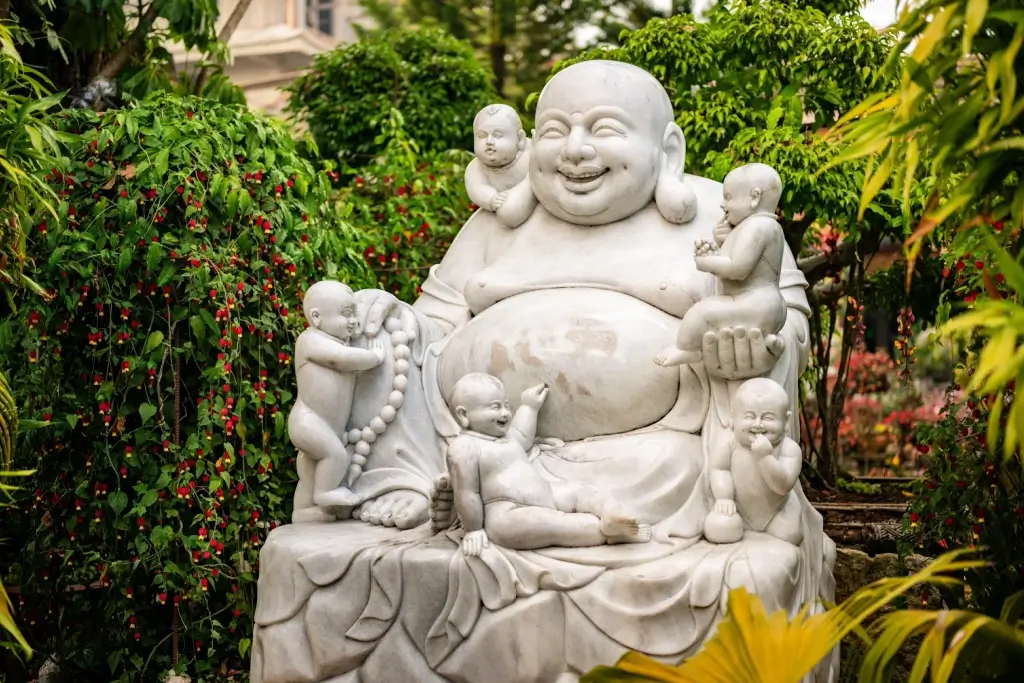
Even if you’re not Japanese, you are likely familiar with Hotei’s appearance: His iconic plump body and wide, cheerful smile can be found on many posters, products, and restaurants, even outside Japan. The large sack slung over Hotei’s shoulder represents contentment and abundance. It symbolizes his ability to provide for others, as it contains endless gifts for children and treasures for the poor.
As a result, he is associated with children and is often depicted surrounded by them, emphasizing his joy, innocence, and carefree attitude. He is also associated with abundance and fulfillment, so he is especially popular during New Year celebrations. You can easily find Hotei statues at temples, such as Tenryu-ji Temple in Kyoto. If you’re in the area, it’s only a 10-minute walk from Arashiyama Station and 500 yen to enter.
Ebisu
Ebisu is the god of prosperity and good luck in trade. Like Hotei, he is also known for his smiling face and plump figure. But he carries a fishing rod and a red sea bream (a type of fish), symbols of prosperity and sustenance. These items make him a favorite with fishermen. He is unique among the Seven Lucky Gods because of his Japanese origins.
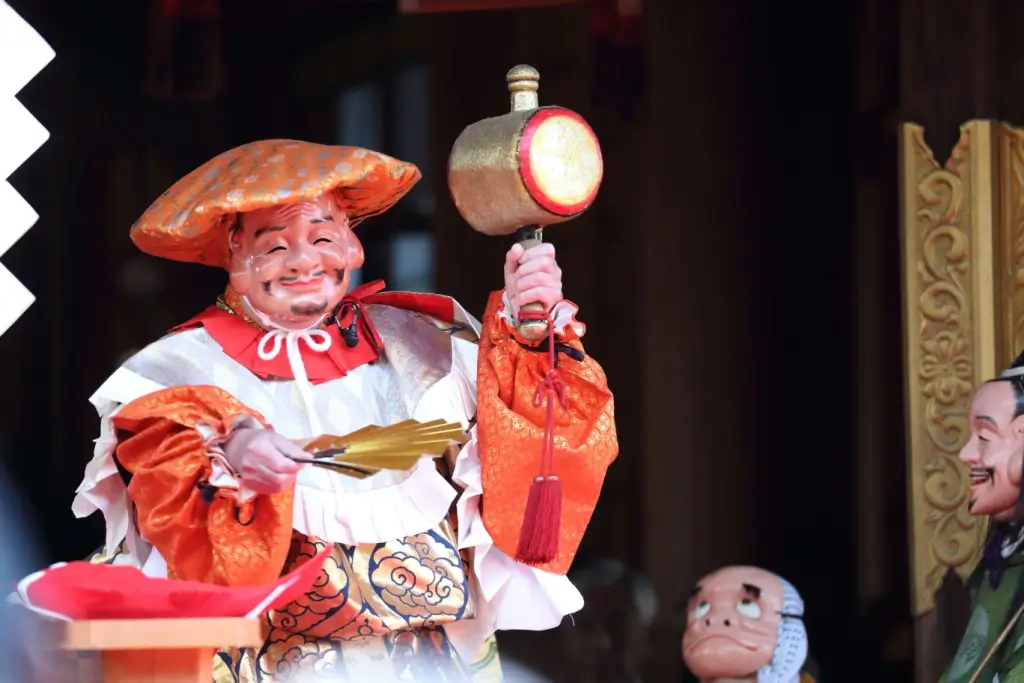
According to legend, Ebisu was originally Hiruko, the weak and imperfect child of the deities Izanagi and Izanami. Because of his flaws, he was cast into the sea and eventually transformed into Ebisu. Despite a difficult start in life, this success is how he became the god of perseverance and success.
Ebisu is very popular with merchants and those seeking steady livelihoods. One famous place dedicated to Ebisu is the Nishinomiya Shrine in Hyogo Prefecture, a five-minute from Nishinomiya Station. For a more festive chance to appreciate him, the annual Toka Ebisu festival is held every January near Imamiya Ebisu Shrine in Osaka. Thousands of visitors gather to wave bamboo branches and seek blessings for their businesses. This festival is known for its fun atmosphere despite being a religious event.
Daikokuten
Daikokuten’s origins are rooted in the Indian god Mahakala. In Hindi, his name means “great black one”, and it still means the same in Japanese. When Daikokuten was adopted into Japanese Buddhist traditions, he became associated with material and spiritual wealth. He carries a mallet, which symbolizes his ability to grant wishes.
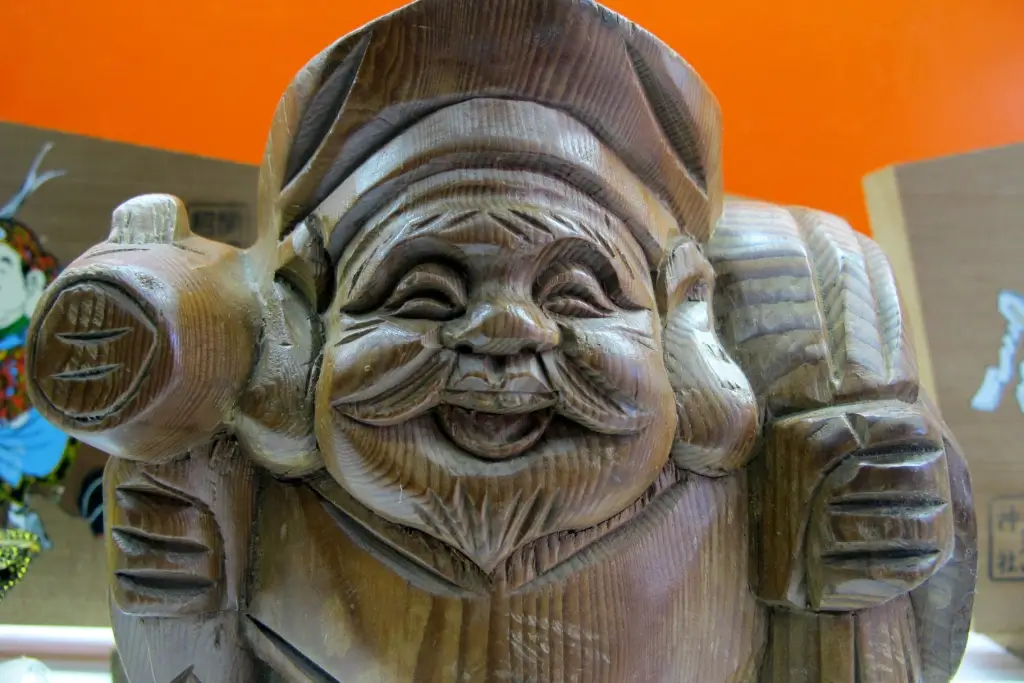
Moreover, he is often shown standing on bales of rice, representing abundance and sustenance, especially for food. For this reason, families turn to him when they seek life’s basic needs or prosperity. The world-famous Kiyomizu-dera Temple in Kyoto is closely associated with this deity. It contains a large statue of Daikokuten near its Todokinon Gate, which has greeted visitors for over 500 years.
Are you looking for great snacks from Japan? Check out Sakuraco! Sakuraco delivers traditional Japanese snacks, teas, and sweets from local Japanese makers directly to your door so you can enjoy the latest treats directly from Japan!
Bishamonten
Bishamonten is a warrior god who protects Buddhist law. He is revered for his strength and sense of justice. Like Daikokuten, he has roots in the Hindu religion—the Indian deity Vaisravaṇa. Bishamonten also has a history in China, Tibet, Mongolia, the Philippines, and Thailand.
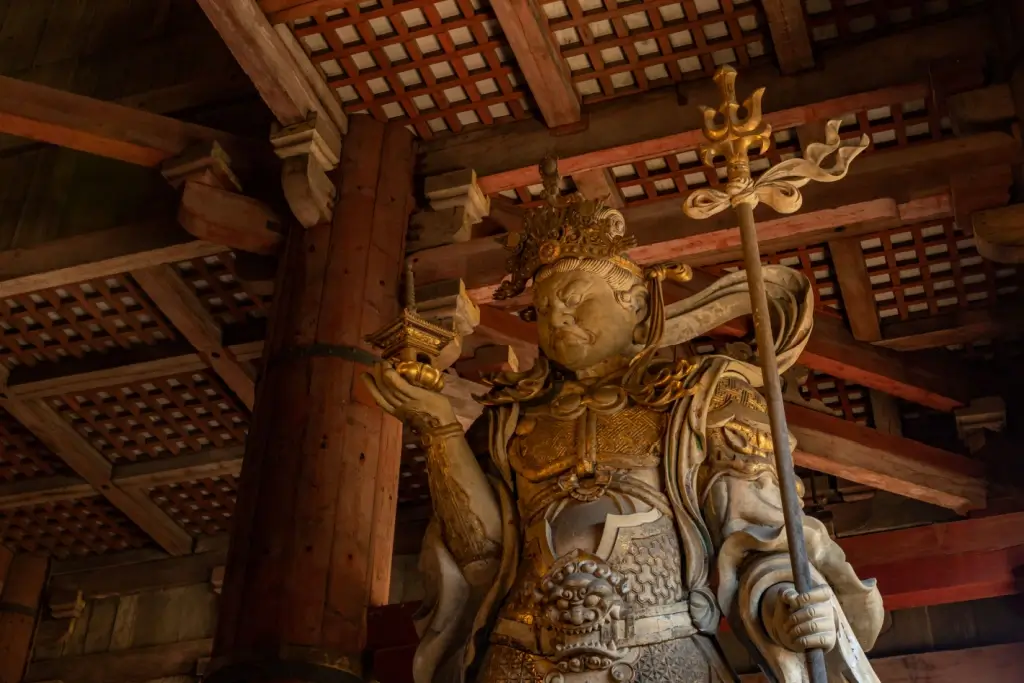
This god symbolizes courage and inspires people to seek justice. He is responsible for physical protection, ensuring good triumph over evil. He also safeguards the spiritual realm, so he is often shown wearing armor. In Japan, his likeness can often be found guarding temple entrances. One such temple is the Kurama-dera Temple in Kyoto.
Benzaiten
Benzaiten is the Japanese goddess of creativity, art, and knowledge. She is also the goddess of music, so she carries a biwa (a traditional lute). She stands out as the only female among the Seven Lucky Gods. Her origins can also be traced back to India – the river goddess Saraswati.
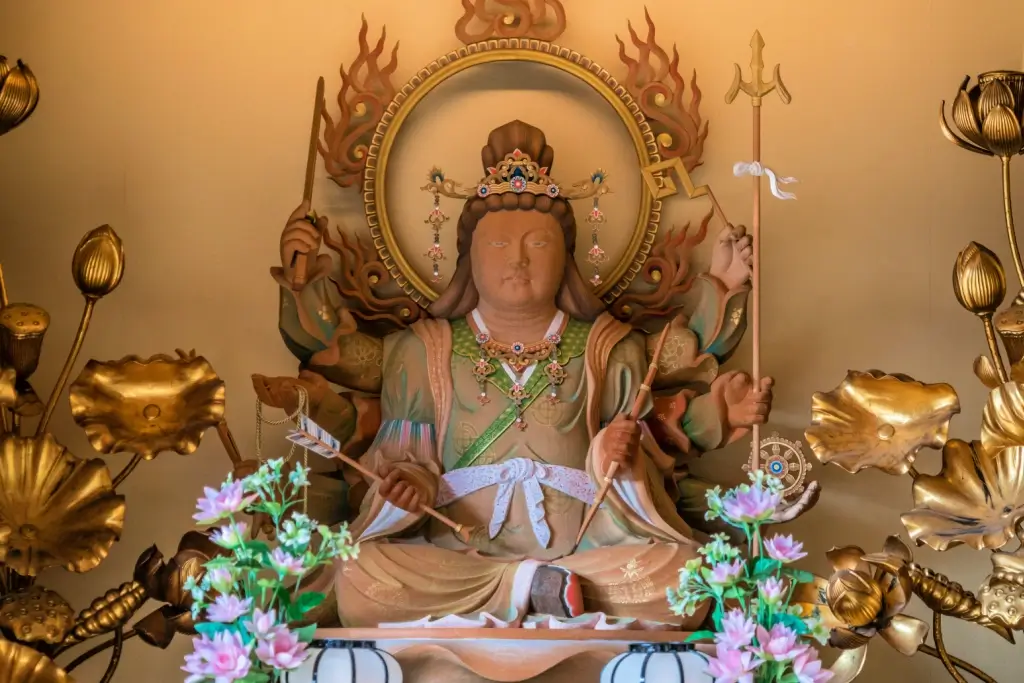
Benzaiten’s association with water symbolizes adaptability in life. So, it is fitting that one popular site where she is honored is a shrine on an island. Enoshima Shrine in Kanagawa is about a 15-minute walk from Katase-Enoshima Station. This place of worship inspires artists, musicians, and scholars to achieve excellence in their crafts.
Jurojin
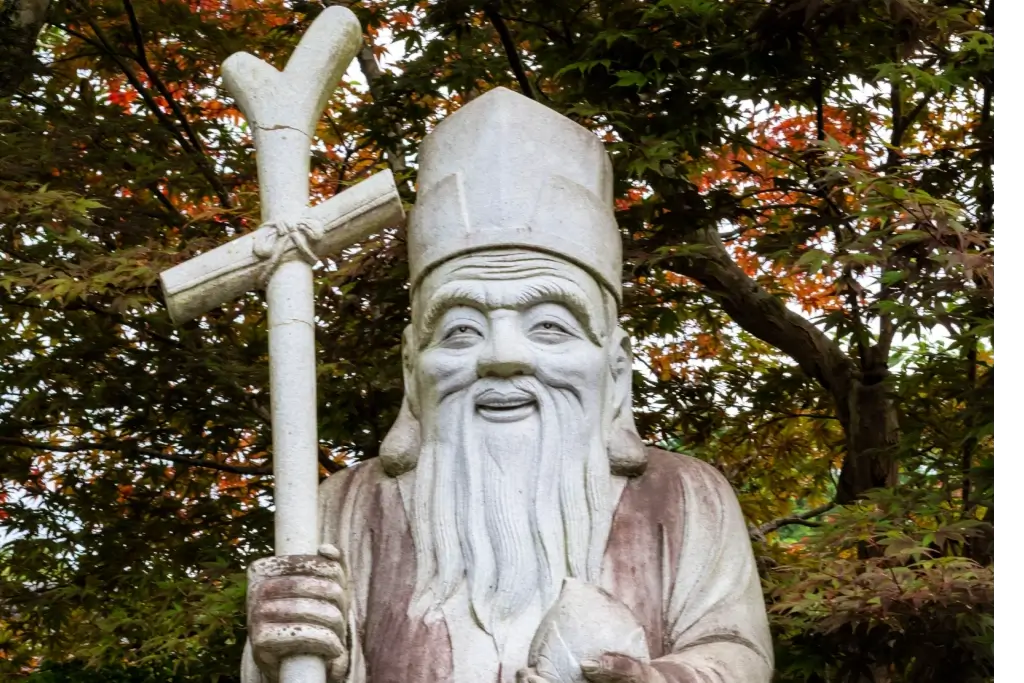
Jurojin is the god of longevity, so he is often depicted as an elderly man with a kind expression. His calm expression reflects the importance of mindfulness and inner peace. He carries a staff and a scroll that contains the secrets of long life and happiness. For this reason, he is often accompanied by images, symbolizing longevity. Jurojin is celebrated at the Shoren-in Temple in Kyoto near Higashiyama Station. His followers value health, wisdom, and the natural cycles of life.
Fukurokujin
Fukurokujin can be easily recognized by his distinctive elongated forehead, symbolizing wisdom. This figure is also worshipped by those hoping for a long life. He often stands next to a turtle to signify long life and a crane to symbolize good fortune. Legends say that he was once a Taoist hermit who finally achieved enlightenment and the ability to connect the physical and spiritual worlds. One site where Fukurokujin is honored is Kthe anda Shrine in Tokyo near Akihabara Station.
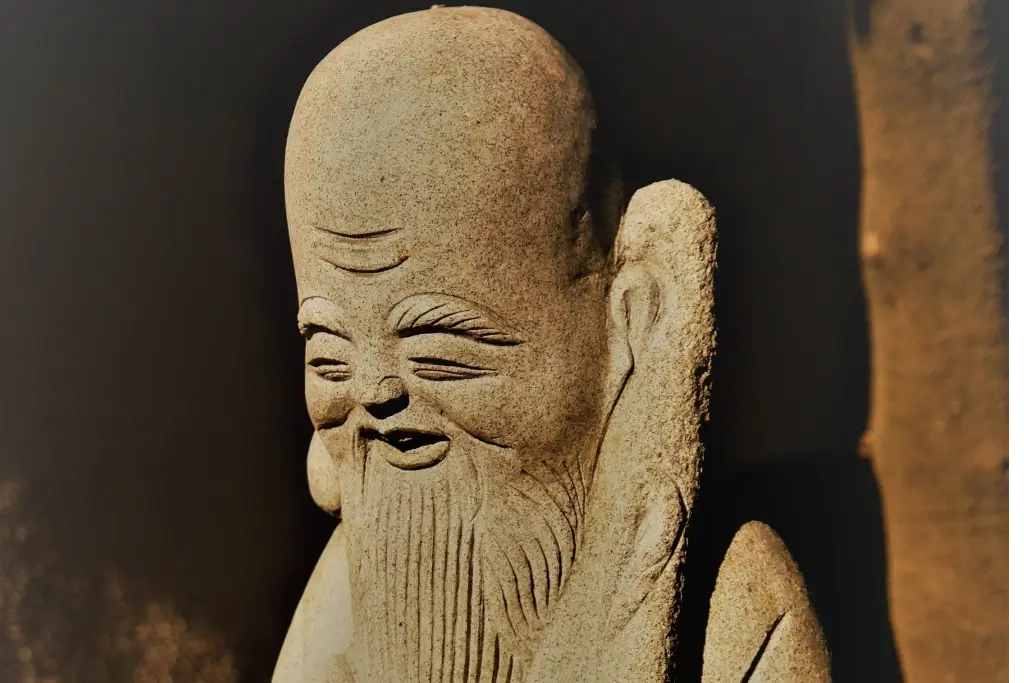
Why are the Seven Lucky Gods important?
The Seven Lucky Gods are essential because they remind us of the common history shared by many Asian countries. Although they go by different names in each country, they represent universal values that transcend cultural and historical boundaries. They inspire courage, resilience, hope, and creativity.
They also remind us to be generous and just to those around us. These gods offer lessons, even in modern life. And encourage us to connect with people on a spiritual and personal level. What do you think about the Seven Lucky Gods? Do you have a favorite among them? Share your thoughts in the comments below!

Discover authentic flavors with Sakuraco
Get Sakuraco 

Discover authentic flavors with Sakuraco
Get Sakuraco 
Related Articles

Ueno Station Recently Restored an Important Mural
A perfect example of Japan’s love for color and art can be found at JR Ueno Station in Tokyo. For decades, a large mural has graced a wall in the train station, bringing light and joy to countless people. In a moment of profound positivity and progress, much-needed restorations to the mural are nearly complete!
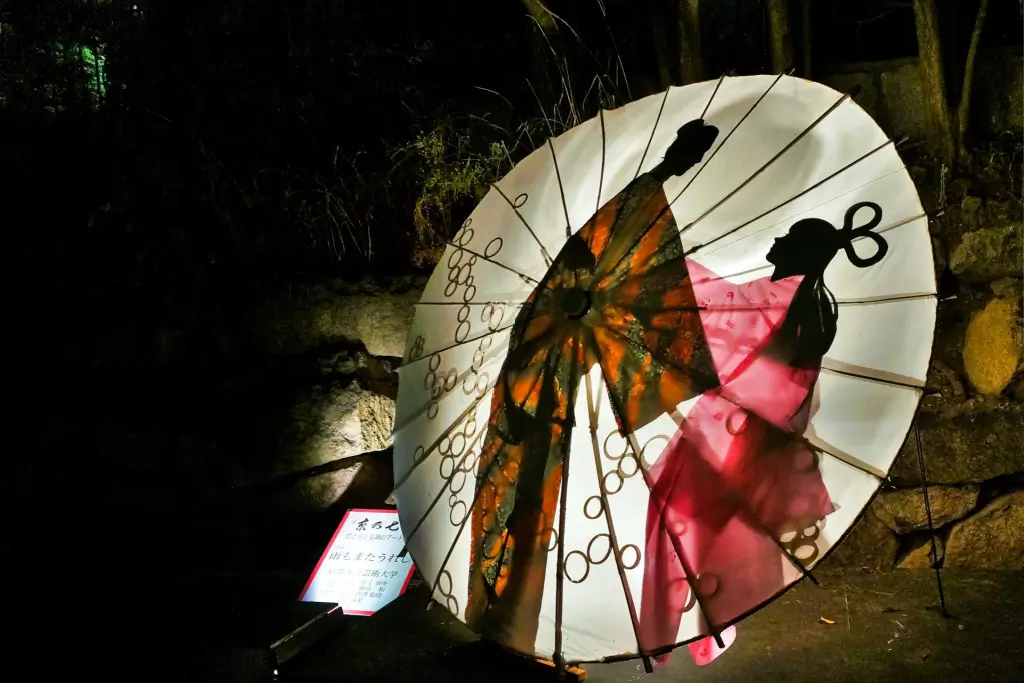
Orihime and Hikoboshi: The Legend Behind Japan’s Tanabata Festival
Orihime and Hikoboshi are central figures in a Japanese legend connected to the Tanabata festival. Their story is linked to seasonal celebrations that happen each summer. The legend has been shared in Japan for centuries through storytelling, education, and public events.

Oshogatsu Japanese New Year Traditions Worth Knowing
Oshogatsu (Japanese New Year) is a special time when traditional customs welcome the beginning of a new year. This celebration mainly takes place from January 1 to January 3.
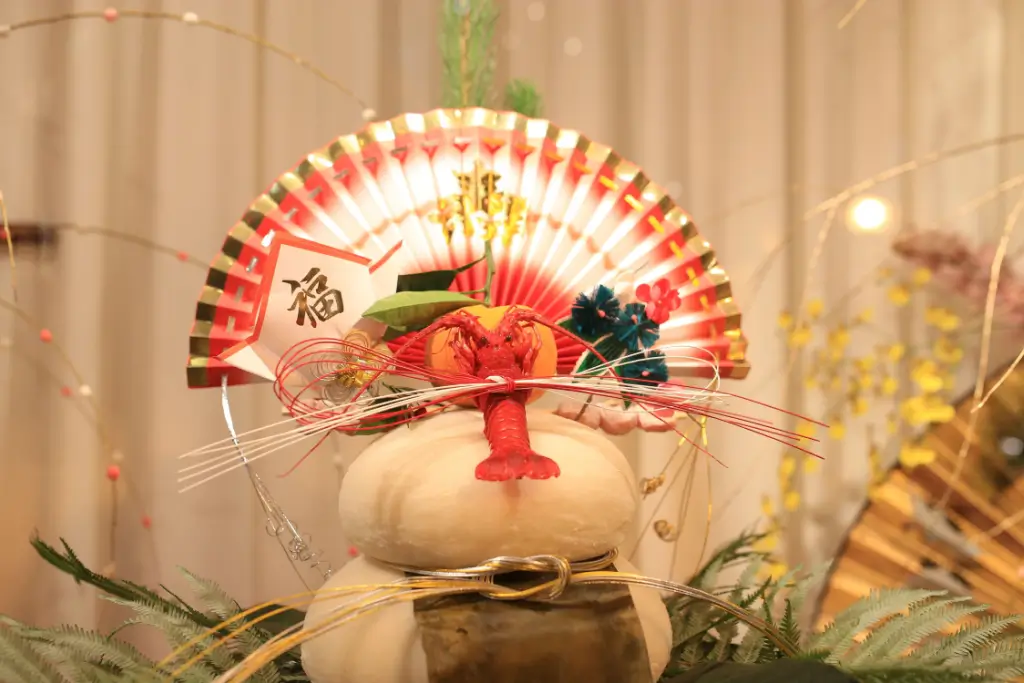
Toshigami and the New Year: How Shinto Welcomes a Sacred Visitor
In the Shinto tradition, Toshigami is the deity who arrives at the end of every year and remains through the New Year to bring blessings, a bountiful harvest, and good fortune. People in Japan honor Toshigami at the turn of the year with rituals, decorations, and special foods.



